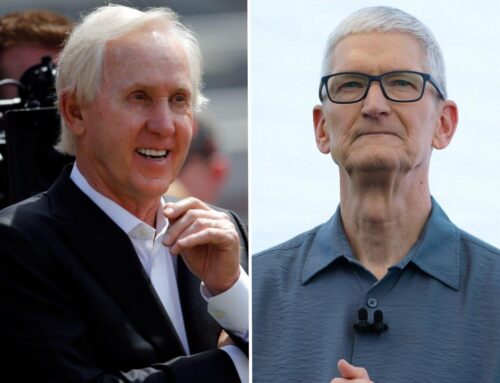Private Investing In Healthcare Is Good Medicine
April 15, 2025
Far-left political leaders, increasingly in tandem with subsidy-seeking business entities and progressive groups, villainize various private-sector producers for problems the government has too often created. Instead of constructive solutions, they hurl epithets. From agriculture and energy producers to drug developers and industrial manufacturers (or any sector progressives attach their “Big” moniker to these days), extremists attempt to publicly shame innovators, investors and employers and then follow up with punitive measures, no matter the human and economic costs.
This irresponsible form of political theater is on display regarding the necessary and critical role capital investing plays in today’s healthcare sector. Take the well-publicized case of the collapse and bankruptcy of Steward Health Care, a hospital system that had struggled financially before being acquired by a private-equity firm and then grossly mismanaged from 2010 to 2020. According to credible reports, its failure and painful facility closures across the country were caused by mismanagement and the looting of financial resources by insiders running the company. Rightfully, those responsible are being held accountable.
The scandal has been highlighted endlessly in an attempt to tarnish the entire private-investment community. However, taking isolated and odious episodes like this and using them as a pretext to impose punitive legislative and regulatory punishments on the rest of the private-investment community is shortsighted and harmful to people’s health. It will reduce essential capital to communities and healthcare stakeholders who need it the most. For every example like Steward, there are numerous others in which private capital provided a critical lifeline of investment and management expertise to help struggling healthcare systems survive and thrive.
A 2020 analysis found that private capital had invested $15 billion in hundreds of urgent care centers, which are much needed for patients in urban and rural areas hard hit by hospital closures and shortages of primary care providers. Research from Georgetown University shows that hospitals backed with private capital experienced increased wages; moreover, doctors and health professionals were able to spend more time with patients because of reduced administrative, legal and regulatory burdens.
Likewise, many primary care and specialty treatment medical practices have found that private equity can help administer back-office functions while enabling them to continue to operate independently and deliver quality healthcare to their communities. The alternative for many is being forced to fold their practices into giant health conglomerates that place providers, insurers, pharmacies and corporate middlemen under the same bureaucratic umbrella. In most cases, patients don’t like that approach and neither do healthcare professionals.
The private-equity industry also plays a vital role in America’s status as the global hub of medical innovation. On average, it takes over a decade and an investment of nearly $3 billion to create a successful drug. This risky endeavor requires a steady stream of private capital to bring forth new discoveries.
Private capital can assist early-stage companies, as well as university research centers developing health products, to connect with large-scale drug companies to get through the regulatory process and bring their products to market. Between 2011 and 2022, private-capital firms invested nearly $300 billion in more than 1,800 American life science companies. Continuing this level of support is critical to keeping the pipeline of medical advances open, which, in the process, creates high-skilled, high-paying jobs.
Americans have unmatched access to cutting-edge treatments. Our innovative economy, largely fueled by private investment, makes this possible. Notably, a disproportionate number of new pharmaceutical patents come from the U.S. This process must continue if we are to win the fight against everything from dementia, cancer, heart disease and diabetes to countless rare diseases. It will also increase healthcare access to vulnerable rural and urban populations.
Villainizing private equity is an easy and irresponsible way for the left to avoid finding successful solutions to the significant challenges that still plague our healthcare system—many of which politicians and bad corporate actors have created. Unfortunately, this finger-pointing, demagogic approach could drive poor policy decisions that end up limiting needed investment.
That would indeed be a sick outcome for our future health.
Search
RECENT PRESS RELEASES
Related Post




